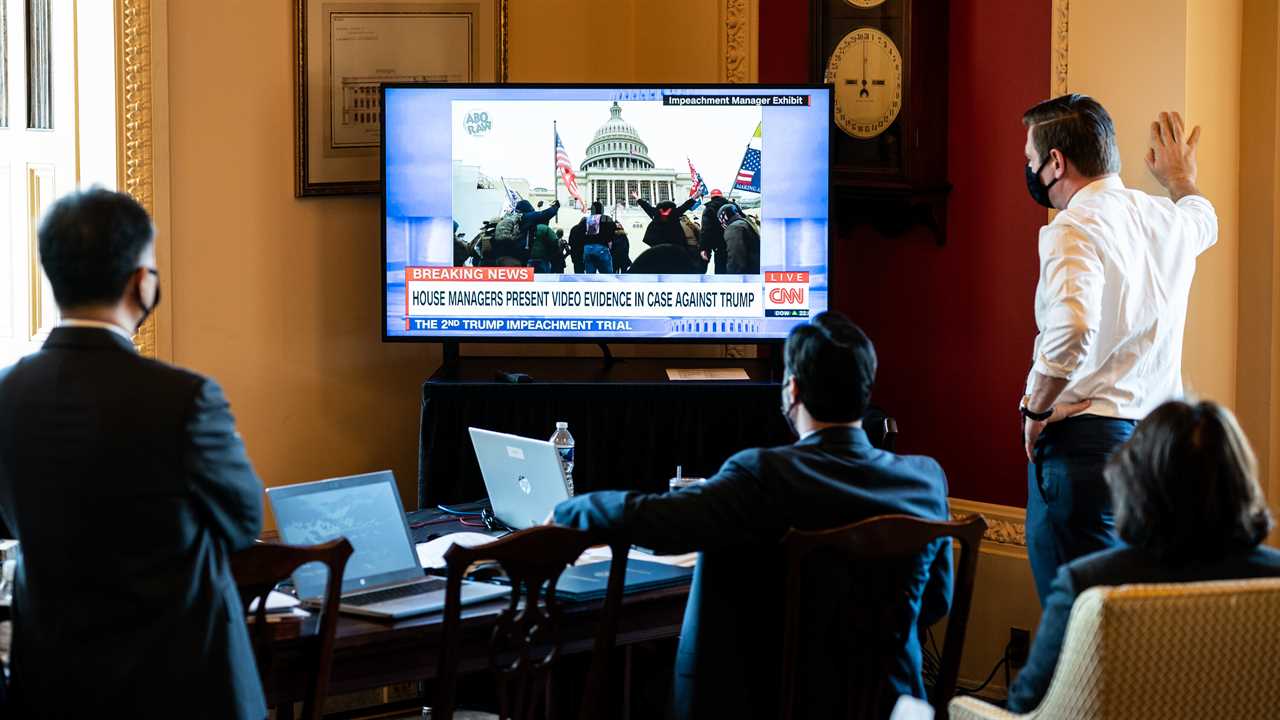
This was no phone call transcript, no dry words on a page open to interpretation. This was a horde of extremists pushing over barricades and beating police officers. This was a mob smashing windows and pounding on doors. This was a mass of marauders setting up a gallows and shouting, “Take the building!” and “Fight for Trump!”
As the United States Senate opened an unprecedented second impeachment trial of former President Donald J. Trump on Tuesday amid the echoes of history, the House managers prosecuting him played powerful video images of last month’s deadly assault on the Capitol that made abundantly clear how different this proceeding will be from the first.
Where the case against Mr. Trump a year ago turned on what might have seemed like an abstract or narrow argument about his behind-the-scenes interactions with a far-off country, Ukraine, the case this year turns on an eruption of violence that Americans saw on television with their own eyes — and that the senators serving as jurors experienced personally when they fled for their lives.
Rather than a judgment of where foreign policy turns into political excess, this sequel trial amounts to a reckoning over Mr. Trump’s very presidency. At issue in the Senate chamber over the coming days will be many of the fundamental aspects that defined Mr. Trump’s four years in power: his relentless assaults on truth, his deliberate efforts to foment divisions in society, his shattering of norms and his undermining of a democratic election.
Still, this trial may end up with the same verdict as the last one. On a test vote on the constitutionality of prosecuting a president after he leaves office, 44 Republicans on Tuesday stood by Mr. Trump, a measure of his enduring sway within his party and a signal that he most likely will win the 34 votes he needs for acquittal given the two-thirds supermajority required for conviction.
But if the six Republicans who voted to proceed also vote to convict him for inciting an insurrection, it will be the most senators to break from a president of their own party in any impeachment trial in American history.
“I would not have thought it when I was sitting on the Senate floor trying the first impeachment — it turns out that was just the opening act,” said Norman L. Eisen, a lawyer for House Democrats during last year’s trial on Mr. Trump’s pressure on Ukraine for political help. “The second one crystallizes all the anti-democratic elements that characterized Trump’s tenure and his Ukraine high crimes but brings them to an even higher pitch.”






